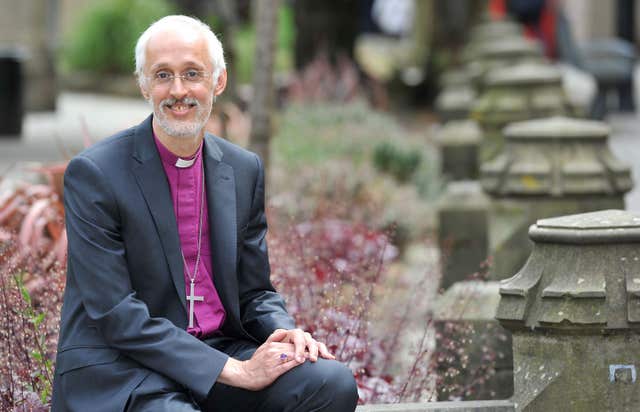
The Church of England has been branded a “feudal” landowner in a row over leasehold reform in the House of Lords.
Lord Truscott criticised the Church over its “feudal property empire” that includes a large number of freehold properties that are leased out.
The non-affiliated peer said: “It is a multibillion-pound business and, like all businesses, the Church will fight to protect its interests as one of the country’s leading landowners.”
His comments came as peers continued their line-by-line scrutiny of the Leasehold and Reform Bill.
One of the aims of the Bill is to bring down costs for leaseholders, and the Government plans to abolish marriage value as one way to achieve this.
Marriage value is the increase in the value of a property once a lease below 80 years is extended or enfranchised, which is shared equally between the leaseholder and freeholder.
Critics argue that it makes extending their lease or buying their freehold unaffordable for many leaseholders.
However, Bishop of Manchester David Walker has called for an exemption for freeholders that are charities, like the Church of England.

He argued that many short leases are held by corporations or overseas entities and that transferring wealth to them from charities would equate to a “reverse Robin Hood”.
He told peers: “What this Bill, in its present form, will do is transfer money presently used for youth work to these very rich organisations and individuals.
“It will present them with an entirely unearned windfall. Hence my comments… about this being a reverse Robin Hood.”
He added: “I have been told that the Bill needs to be kept simple and that making any exceptions will unnecessarily complicate it. Of course, there is already an exception for the National Trust…
“However, the simplest solution to a problem is not always the right one. In any battle between simplicity and justice, justice must in my view always prevail.”
The Church has previously said that the abolition of marriage value would result in a one-off cut in income from the Church Commissioners Hyde Park Estate of £35 million, and reduce the annual amount given in support of the church’s charitable work by £1 million each year.
Meanwhile, other peers argued against the abolition of marriage value across the board, without compensation for freeholders.
Tory peer Lord Howard of Rising argued that it is a “dangerous precedent for governments to transfer wealth arbitrarily” and that it poses a “threat to property rights”.
Meanwhile, independent crossbench peer Baroness Deech, who said she taught property law for many years, said: “This area of law goes back to the Middle Ages, in fact it probably goes back 1,000 years, and it is by no means simple to reform it.”
She asserted that there is a “strong chance” of it being attacked under human rights law because it “deprives people of their property without proper compensation”.
Conservative peer Lord Moylan argued that marriage value is a “real financial asset” that is being transferred to leaseholders “at the stroke of a pen”, branding it “simply expropriation”.
He asked: “What is the justice involved in transferring wealth from a group of people, who include charities and indeed pension funds, to leaseholders who, in many cases, would be frightfully rich?”
However, non-affiliated peer Baroness Fox responded: “It’s taken a few years of me being in here to hear so much enthusiasm for feudalism, but it seems to be coming up again.
“It might make it difficult to untangle the law in terms of how many hundreds of years this goes back, and I’m not trying to be glib about it, but I do not think it’s appropriate to sing the virtues of feudalism either.
“And I think feudal property rights are not in the interests of modern democrats, whether they’re on the left or the right.”
Housing minister Baroness Scott of Bybrook responded that the Government does not believe leaseholders should have to pay marriage value, and abolishing it is about setting right the “inherent injustice of the leasehold system”.
She said: “The Government’s stated objective is to make it cheaper and easier for leaseholders to extend their lease or acquire their freehold. We want them to obtain greater security of tenure…
“For the freeholder, the marriage value which is payable under the current law is a windfall created by the freehold and leasehold interest being married earlier than they otherwise would have been, namely at the end of the lease.”
She explained: “Under our valuation scheme, the freeholder is compensated as if the lease simply ran its course.
“We believe this is adequate compensation, sufficient compensation to reflect their legitimate property interests.”
Conservative frontbencher Lord Gascoigne added: “The good work of a charity is separable from its funding.
“Requiring leaseholders of charities, for no other reason than the coincidence of the nature of their freehold, when other leaseholders don’t have to, would be, I’m afraid to say, unfair.
“Granting exemptions would also create an unbalanced, two-tiered system. By removing marriage value across the board, we would be levelling the playing field and ensure that we are widening access to enfranchisement to all leaseholders, both now and in the future.”


Comments: Our rules
We want our comments to be a lively and valuable part of our community - a place where readers can debate and engage with the most important local issues. The ability to comment on our stories is a privilege, not a right, however, and that privilege may be withdrawn if it is abused or misused.
Please report any comments that break our rules.
Read the rules here